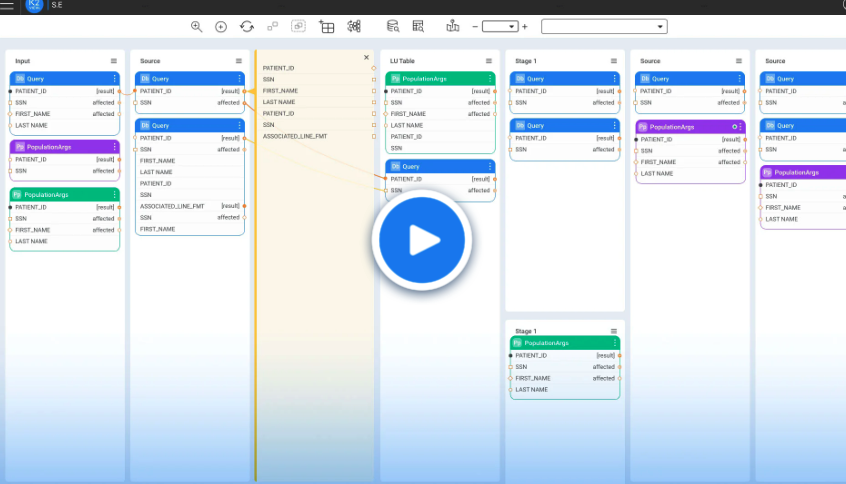More and more enterprises are turning to generative AI use cases in customer service to pilot their GenAI initiatives. Discover why in our recent survey.
Generative AI is transforming customer service
Customer service is evolving in ways we couldn't have imagined just a few years ago, thanks to generative AI (GenAI) and GenAI frameworks like Retrieval-Augmented Generation (RAG). Organizations are eager to adopt this technology to enhance customer experiences, streamline operations, and gain a leg up on the competition.
In this article, we'll dive into insights from our recent survey, Enterprise Data Readiness for GenAI in 2024, on how companies are leveraging generative AI use cases in customer service across various industries.
Get your free copy of our State of GenAI Data Readiness report now.
Top use cases for generative AI in enterprises
According to our survey, the primary areas where companies plan to implement generative AI solutions in the next 12 months are marketing and sales (63%) followed by customer operations (54%).

Top GenAI use cases
While marketing and sales have some of the strongest and most mature use cases for GenAI, there’s a growing focus on generative AI data augmentation for customer operations across various industries, like retail and telco (83%), travel and hospitality (74%), financial services (47%), and healthcare and pharma (42%).
The adoption of GenAI for customer-centric operations is accelerating, particularly in sectors like hospitality, retail, and telecommunications. Customer service departments are now deploying AI-powered initiatives, like RAG chatbot solutions, which are transforming traditional support models. Such implementations yield measurable improvements in key performance metrics – from faster resolution times to AI personalization of customer interactions.
This shift toward AI-enhanced customer operations represents a strategic priority for enterprises seeking to maintain competitive advantages in increasingly digital markets.
Why customer service?
So, why is customer service such a ripe area for GenAI applications? Customer service directly impacts customer satisfaction and loyalty, and in turn, core business metrics like customer acquisition and retention. By implementing generative AI use cases in customer service, companies can:
-
Enhance efficiency, by automating routine inquiries to free up human agents for more complex issues.
-
Personalize interactions, by using AI to tailor responses based on individual customer data and relevant contexts.
-
Improve availability, by offering 24/7 support without the limitations of human staffing.
-
Boost satisfaction, by providing quicker, more accurate responses, leading to happier customers.
-
Increase scalability, by being able to increase volumes without a proportional increase in cost.
GenAI use cases in customer service maturity model
As enterprises integrate generative AI into customer service, they progress through different stages of maturity. Understanding this maturity model can help organizations plan their journey more effectively.
| 1 Self-serve for simple transactions |
2 GenAI rep assist |
3 GenAI customer assist |
4 GenAI autonomous agents |
| Description | |||
|
|
|
|
| Benefits | |||
|
|
|
|
Starting with basic Self-serve for simple transactions, organizations lay the groundwork for AI adoption.
However, it’s not until the second stage, GenAI rep assist, that organizations see the first major transformation. This hybrid approach often delivers higher ROI by enhancing the capabilities of human agents rather than replacing them.
The shift to GenAI customer assist marks a crucial turning point, where AI evolves from a support tool to becoming the primary customer interface. This stage represents a significant leap in capability, in which the AI can address any customer inquiry in a personalized, context-aware manner.
The final stage, GenAI autonomous agents, points to a future where customer service can scale exponentially without proportional cost increases. For enterprises deploying generative AI use cases in customer service, that means the business value of their GenAI investment will rise indefinitely.
Top GenAI adoption challenges
While the potential is exciting, it's important to be aware of the challenges that come with implementing generative AI use cases in customer service, including:
-
Data integration
AI systems must have access to unified customer data, which is typically spread across different systems and stored in different formats. Integrating this data is crucial for personalization, but it can also be very challenging.

Top customer data stores
-
Privacy and compliance
Handling sensitive customer data such as Personally Identifiable Information (PII) requires robust security measures and compliance with complex regulations like CPRA, GDPR, or HIPAA.
-
Quality assurance
Ensuring AI provides accurate and appropriate responses is crucial to delivering a satisfactory customer experience. AI hallucinations, or incorrect or inappropriate responses, can cause customer frustration and damage trust.
-
Change management
Employees need training, and workflows may require adjustments to integrate AI effectively. There may also be resistance to change that needs to be overcome.
Best practices for using GenAI in customer service
The key to minimizing the challenges listed above and maximizing the benefits is careful planning, investing in technology and training, and a clear strategy for implementation. Here are some best practices to consider:
-
Assess your current maturity level
Use the maturity model above to determine where your organization stands. This will help inform your strategy, needs, and investment requirements.
-
Start with a pilot program
Launching a pilot program can help you test the waters without a significant upfront investment. Choose a specific area or use case where AI could have the most immediate impact.
-
Invest in the right data infrastructure
Ensure your customer data is unified and accessible to AI systems through solutions like Micro-Database™ technology. This creates individual data lakes for each customer, employee, or product that automatically sync entity data and enforce AI data quality and privacy rules, enabling AI personalization at scale.
-
Focus on employee training
Equip your customer service team with the skills they need to work alongside AI tools effectively, including technical training and adapting to new workflows.
-
Prioritize privacy and compliance
Create appropriate controls and governance rules to ensure compliance with all relevant regulations as well as internal security policies.
Seize the potential of GenAI for customer service
GenAI is redefining customer service across numerous industries. Enterprises that embrace this technology and progress through the maturity model can expect significant improvements in efficiency, personalization, and customer satisfaction.
The key is to develop a clear strategy, work in phases, and address data challenges head-on. With the right plan and advanced RAG tools, like GenAI Data Fusion by K2view, you can easily utilize all relevant customer data without compromising on privacy or compliance.
Learn more about GenAI Data Fusion by K2view, the RAG tools
that prepare, unify, and secure your customer data for GenAI.














